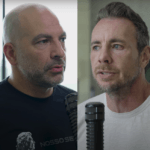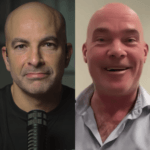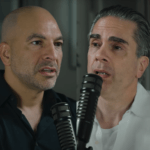Check out more content with expert, Matt Kaeberlein, Ph.D.:
- (Aug 20, 2018) Rapamycin and dogs — man’s best friends? — living longer, healthier lives and turning back the clock on aging and age-related diseases
- (Sep 13, 2021) The biology of aging, rapamycin, and other interventions that target the aging process
- (May 16, 2022) AMA #35: “Anti-Aging” Drugs — NAD+, metformin, & rapamycin
Matt is someone who is deeply interested in understanding the biology of aging. Why do we age? What happens to us as we age? What are the things we can do to slow the aging process? How can we delay or prevent the onset of age-related diseases? These are all questions that Matt thinks deeply about, and explores these questions with his research at the University of Washington. He is currently investigating many of these questions through the Dog Aging Project and the compound rapamycin—the only known pharmacological agent to extend lifespan all the way from yeast to mammals—across a billion years of evolution. We talk about cancer, heart disease, Alzheimer’s disease, healthspan, lifespan, and what we can do to provide longer, healthier lives for both people and dogs.
We discuss:
- Matt’s early years and his aha moment on aging [4:00];
- Studying dogs [6:30];
- Dogs, rapamycin, and its effects on lifespan and healthspan [15:30];
- An unexpected finding in presumably healthy dogs [36:00];
- Rapamycin in cancer treatment [50:00];
- Why isn’t there a rapamycin trial for Alzheimer’s disease (AD)? [1:01:30];
- If Matt could do a definitive study on life extension in dogs, with resources not being a concern, what does that experiment look like? [1:16:00]; and
- More.
§

Matt Kaeberlein, Ph.D.
Matt Kaeberlein, Ph.D., is recognized globally for his research on the basic biology of aging. The premise of his research is that understanding the molecular mechanisms of aging will lead to interventions that slow the onset and progression of age-related chronic conditions, such as cancer, diabetes, kidney disease, heart disease, Alzheimer’s and others. Dr. Kaeberlein received his Ph.D. from the Massachusetts Institute of Technology in 2002 and performed his post-doctoral research in the Department of Genome Sciences at the University of Washington. Dr. Kaeberlein was appointed as an Assistant Professor of Pathology in 2006 and was promoted to Associate Professor in 2011.
Dr. Kaeberlein has authored more than 140 publications in top scientific journals, including 19 published in Nature and Science, his work has also been featured in the popular press. Dr. Kaeberlein has been recognized with several awards, including a Breakthroughs in Gerontology Award from the Glenn Foundation, an Alzheimer’s Association Young Investigator Award, an Ellison Medical Foundation New Scholar in Aging Award, an Undergraduate Research Mentor of the Year Award, and a Murdock Trust Award. In 2011, he was named the Vincent Cristofalo Rising Star in Aging Research by the American Federation for Aging Research and appointed as a Fellow of the Gerontological Society of America, and in 2012 he joined the Board of Directors of the American Aging Association. Dr. Kaeberlein currently serves on the editorial boards for Science, Aging Cell, Cell Cycle, PloS One, Frontiers in Genetics of Aging, BMC Longevity and Healthspan, F1000 Research, Ageing Research Reviews, and BioEsssays.
In addition to his primary appointment, Dr. Kaeberlein is the Director of the Dog Aging Project, co-Director of the University of Washington Nathan Shock Center of Excellence in the Basic Biology of Aging, the founding Director of the Healthy Aging and Longevity Research Institute, and the current President of the American Aging Association. [kaeberleinlab.org]
Matt on Facebook: Matt Kaeberlein
Matt on Instagram: @mkaeberlein
Matt on Twitter: @mkaeberlein





